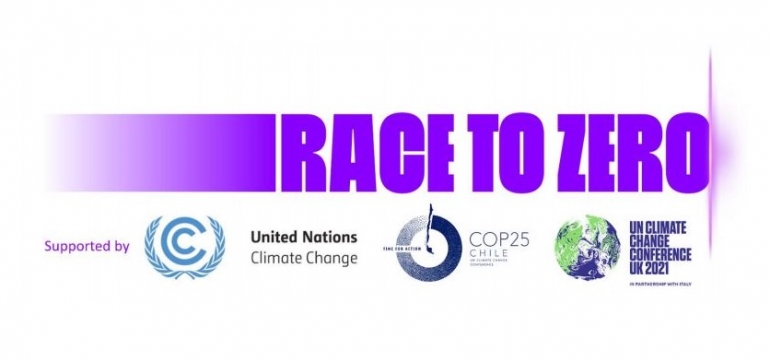The Race to Zero is a global United Nations-led campaign to rally leadership and support from businesses, cities, regions, investors for a healthy, resilient, zero carbon recovery.
It mobilises a coalition of leading net zero initiatives, representing 733 cities, 31 regions, 3,067 businesses, 173 of the biggest investors, and 1,062 Higher Education Institutions. These ‘real economy’ actors join 120 countries in the largest ever alliance committed to achieving net zero emissions by 2050 at the latest. Collectively these actors now cover nearly 25% global emissions and over 50% GDP.
The objective is to build momentum for the shift to a decarbonised economy ahead of the crucial global climate negotiations at COP26 in Glasgow in November 2021.
UNSW is now a signatory to the Race to Zero for Universities and Colleges and Race to Zero NSW, meeting the starting line criteria:
- Pledge: Pledge at the head-of-organisation level to reach (net) zero GHGs as soon as possible, and by mid-century at the latest, in line with global efforts to limit warming to 1.5C. Set an interim target in the next decade.
- Plan: Within 12 months of joining, explain what actions will be taken toward achieving both interim and longer-term pledges.
- Proceed: Take immediate action toward achieving (net) zero, consistent with delivering interim targets specified.
- Publish: Commit to report publicly both progress against interim and long-term targets at least annually.
UNSW Sydney achieved net zero operational (scope 1 and 2) emissions in 2020 through investment in energy efficiency, onsite and offsite renewable energy and carbon offsets. UNSW is also targeting net zero value chain (scope 3) emissions including supply chain, travel, investments, commuting and other sources, by 2050 and a 50% reduction by 2030.
UNSW’s progress in decarbonising its operations and value chain are detailed in the annual Environmental Sustainability Report .
